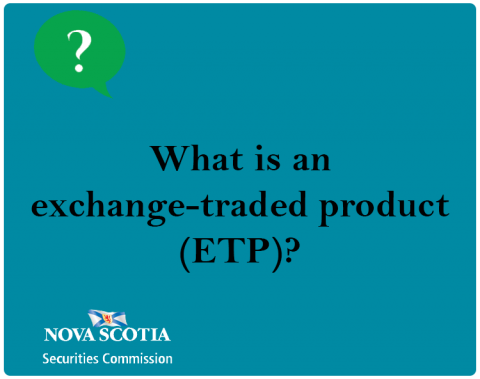Submitted by nsscadmin on

One of our readers came across the term exchange-traded product recently for the first time. They were familiar with exchange-traded funds (ETFs) but had not heard of ETPs.
If you’re familiar with ETFs, then you do actually know what an ETP is, because an ETF is a form of ETP. An ETP is a security that tracks underlying securities, such as an index or other financial instrument. ETPs are traded on a stock exchange, and their price fluctuates throughout the day. The price of at ETP is derived from the underlying securities it tracks.
As we already said, an ETF is a type of ETP. An ETF is an assortment of investments that can include stocks, bonds, commodities and derivatives. An ETF usually tracks an underlying index, such as the TSX, but it can also follow a specific industry, sector, or commodity index.
Another example of an ETP is an exchange-traded note (ETN). Like ETFs, ETNs track an underlying index and are traded on an exchange. The difference is that ETNs hold unsecured debt securities. An ETN pays investors any returns received from the index it is tracking at the maturity date.
